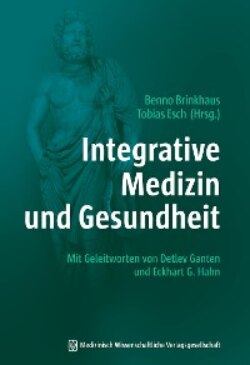Читать книгу Integrative Medizin und Gesundheit - Группа авторов - Страница 24
Summary
ОглавлениеMind Body Medicine (MBM) is an important part of today’s Integrative Medicine. The term originally comes from the USA, where MBM has now been integrated into general medical care. It includes, in particular, medical procedures and approaches that strengthen self-help skills and use mental and physical techniques. In addition to its practical aspects, the academic dissemination of MBM also includes a differentiated study of its mechanisms of action – important work in mindfulness and relaxation research also belong in this area.
In Germany, MBM has a close relationship to naturopathy, explicitly, to the so-called ‘order therapy’ (Ordnungstherapie – OT). This is why some experts in the field of naturopathy in Germany equate MBM with OT.
Currently, a growing number of therapies and interventions have been grouped under the generic term of MBM, also called mind body interventions (MBI). MBIs usually follow the BERN criteria (Behavior-Exercise-Relaxation-Nutrition), whereby the focus in each column always lies on self-regulation.
Scientific studies indicate that MBIs are particularly effective in the context of health promotion and prevention, as well as for chronic, lifestyle, or stress-related diseases. Paradigmatically, they follow the so-called salutogenetic approach, which aims to explore and strengthen health protection factors or resistance resources (individual resilience and coherence factors) as well as to reduce stress. From a neurobiological point of view, MBIs are closely related to the placebo effect, also known as ‘contextual effects’.
As an activator of the potential for self-healing and health care, MBM can be trained and strengthened effectively, for which ‘experts in health promotion’ are often used. Ideally, they work together with experts in conventional medical treatment as part of a team at a single integrated facility. Hence, the so-called ‘two-door model’ is recommended for this purpose – which describes the integrative combination of medical treatment management on the one hand and patient activation (MBM) on the other. Institutions that work in such a patient-centered and team-based, multimodal way together with a combined salutogenesis-pathogenesis approach are increasingly common in the context of integrative (general) medicine.
This chapter describes the development of MBM in the context of historical developments. This context also against the backdrop of meditation research that has been emerging in the US since the 1970s and the scientific investigation of the stress phenomenon. References to basic research, including neurobiological reward, and placebo physiology are included while demarcations to psychotherapy and a concrete action plan are also present.
